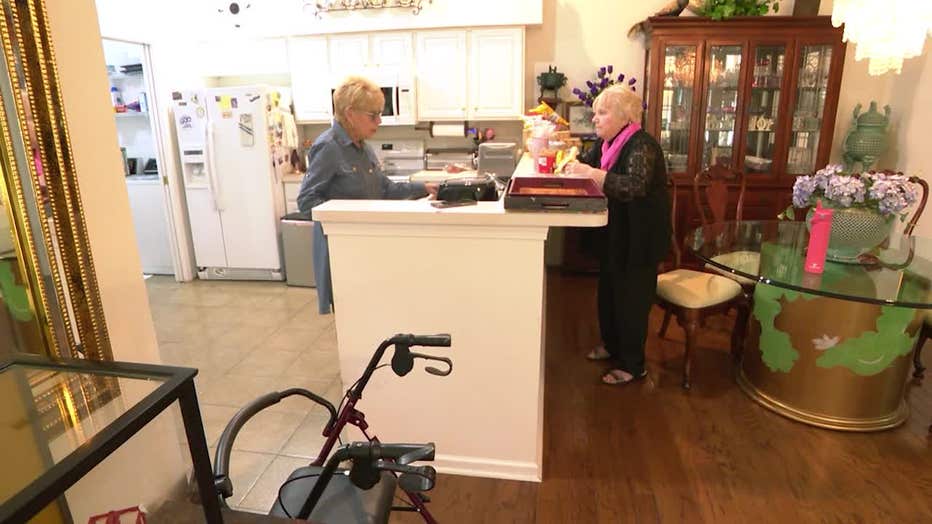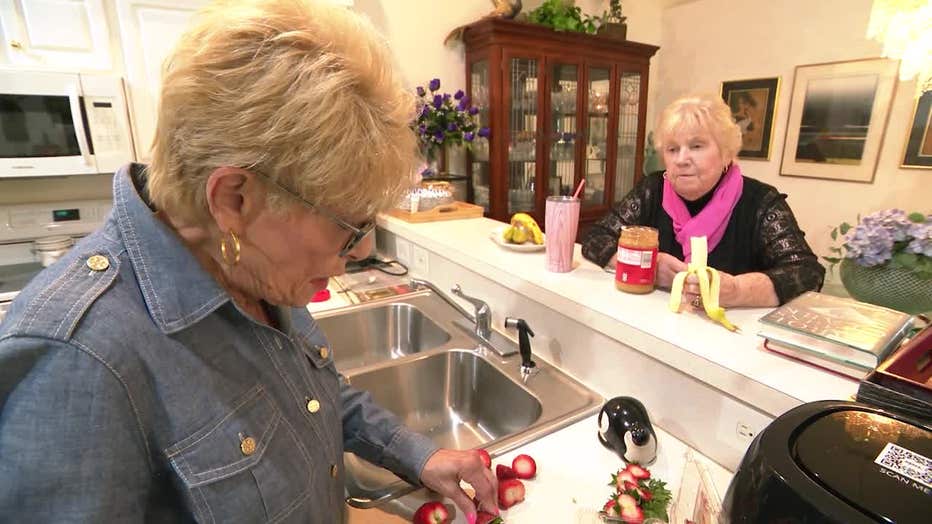With a third of seniors reporting post-pandemic loneliness, one agency is helping older adults stay connected
In-house caregivers companions for seniors
Polls show that while seniors have lower rates of depression and anxiety than younger adults, many still feel isolated and alone. One local caregiving agency is working to change that.
JOHNS CREEK, Ga. - Over the last year, Joy Kubie and Dee Lauria have settled into a comfortable routine at Kubie's Johns Creek, Georgia, home.
"There will be days when Joy and I will sit, and we just talk most of the morning, and it's like, 'Where does the time go?'" Lauria says.
Kubie was matched with Lauria, a Right At Home certified nurse assistant, after the 85-year-old took a hard fall that landed her in the hospital.
"I'd been paying for long-term care insurance for 35 years, so I figured I deserved it after 35 years," she says.
Kubie's son wanted her to have help seven days a week. She agreed to weekdays only, with a break on weekends.

Kubie and Lauria
"She was very open and very easy to speak with," Lauria says. "She also was trying to figure out how this was going to work out."
Because Kubie, who is used to living on her own, knows she is at risk of falling again.
"And, when I take a shower, that's the most dangerous thing, I guess," Kubie says. "So, she helps me, you know, be sure that I don't fall when I'm taking a shower. "
Lauria spends five days week, nine hours a day, with Kubie.
"In that nine hours, we do a lot," she says. "We plant flowers, we walk, we go to the movies, we go out with her friends."
Susan Brown owns Right At Home, an in-home and in-facility care agency that matches about 150 certified nurse assistants with clients in the North Atlanta-area.
"We have caregivers who can go out and take people to the park, take them to the mall, just go to the grocery store," Brown explains.
Kubie has three children, and a strong support network.
Brown says many of their clients are more isolated.
"A lot of the people we take care of, they've lost a spouse, they've lost kids, and they're all alone," she says. "So, we are what they have."

Kubie and Lauria
Researchers are still trying to fully understand how the pandemic has affected older Americans, who were largely cut off from their families, faith communities and social support systems.
Although rates of loneliness and isolation are now decreasing, a University of Michigan survey found 34% of people ages 50 to 80 are still experiencing loneliness, sometimes going a week or more without outside social contact.
That is down from the over half of seniors polled who said they felt isolated and alone, in June 2020.
"The isolation and loneliness with senior adults is a true thing, and it was really highlighted during COVID," Brown says. "But, it's always been an issue, because when you can't, you can no longer drive, that's really difficult."
Kubie says that's what makes her stir-crazy.
"I've been driving since I was 16-years-old, and that's the biggest problem with getting old, is somebody trying to take your driver's license away," she says. "The car is still the garage. I still have a driver's license. I still have car keys in my pocket, if I want to do that drive."
To keep the peace with her kids, Kubie lets Lauria do driving, and Lauria lets her call the shots.
"Joy jokes that I boss her around, but she really is the boss, and I work for her," she smiles.
Kubie has grown comfortable with Lauria's companionship.
"It's just like having, you know, a buddy in my house with me," she says.

